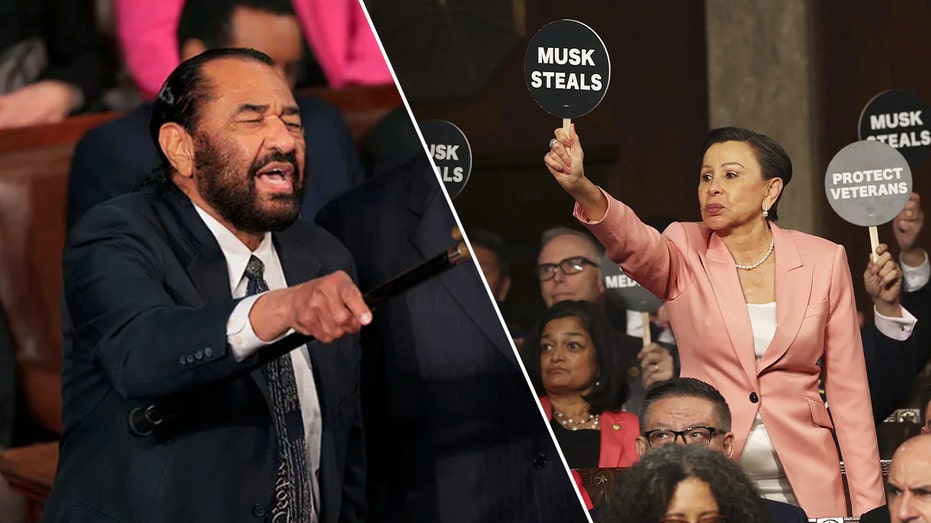Democratic Strategists Debate Protest Tactics During Trump's Speech

Sarah Johnson
March 8, 2025
Brief
Democratic strategists debate protests during Trump's joint address to Congress, questioning their effectiveness and impact on public perception, party unity, and voter outreach.
Democratic strategists are in heated debate over how lawmakers handled President Donald Trump's recent joint address to Congress. Some argue the protests during the speech were counterproductive and caused backlash within the party.
"I think it would have been smarter to just boycott the speech," commented Jim Manley, a seasoned Democratic political strategist, arguing that attending the event lent Trump an undeserved legitimacy. That’s one way to look at it—if you can’t beat the theatrics, don’t play the game.
Andrew Bates, former senior White House deputy press secretary for Joe Biden, agreed, saying the interruptions "preached to the choir" instead of expanding the party’s reach. Bates applauded Michigan Sen. Elissa Slotkin's approach, who focused on messaging about Republican policies affecting everyday Americans. Even in politics, it seems strategy beats spectacle.
Reports indicate that Democratic House leadership was "very unhappy" with lawmakers who disrupted the speech, including those who held up signs reading "Musk steals." House Democrats were reportedly summoned for a "come to Jesus" meeting to address their behavior. Political consultant Brad Bannon summed it up: "No one can beat Trump at theatrics... When it comes to theatrics, [Democrats] don't come close." Ouch.
One strategist noted that private voter data showed the protests didn’t sit well with many Americans. It’s hard to win hearts when you're yelling over the show.
Rep. Al Green, D-Texas, took his protest to the next level by refusing to sit down during Trump’s speech, ultimately being removed by the Sergeant at Arms. While David Axelrod acknowledged Green’s actions likely earned praise from party loyalists, he said it didn’t resonate with most voters. "It’s no more appealing than GOP hecklers shouting at Biden," Axelrod pointed out. Everyone loves a good protest, but maybe not when it feels like a circus.
Democrats also faced criticism for staying seated during Trump’s introduction of DJ Daniel, a 13-year-old cancer survivor. Sen. Mazie Hirono, D-Hawaii, deflected, suggesting there were more pressing issues to address. Meanwhile, Sen. Peter Welch, D-Vt., noted that Trump omitted key details about cuts to cancer research funding—certainly a poignant detail.
Breaking from the party consensus, Sen. John Fetterman, D-Pa., expressed disappointment in the lack of celebration for DJ Daniel’s story. "I mean, I have a 13-year-old myself... I think that's something we can all celebrate," Fetterman said, calling it "a touching moment." In a sea of party politics, this moment of humanity stood out.
All in all, the Democrats might need to rethink their playbook. Protesting can be powerful, but when it backfires, it just leaves everyone wondering what the point was.
Topics
Editor's Comments
It’s clear the Democrats are struggling to find an effective strategy against Trump’s theatrics. Yelling in the chamber may feel good in the moment, but it doesn’t necessarily win over voters. Sometimes, silence and strategy speak louder than paddles with slogans.
Like this article? Share it with your friends!
If you find this article interesting, feel free to share it with your friends!
Thank you for your support! Sharing is the greatest encouragement for us.



